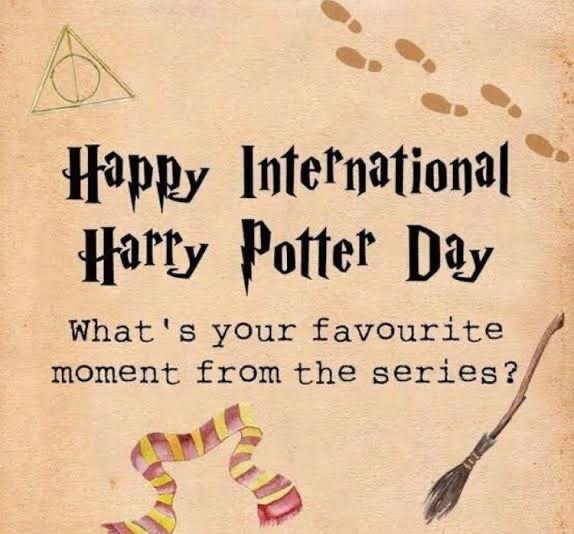Harry Potter winners
 An 11 year old Welsh speaker, who learnt to read in English after he discovered Harry Potter, has won the FT's contest to mark the publication of J K Rowling's latest book in the series.
An 11 year old Welsh speaker, who learnt to read in English after he discovered Harry Potter, has won the FT's contest to mark the publication of J K Rowling's latest book in the series.
Huw Jones, of Brecon in West Wales, beat more than 150 entrants to scoop the prize of a weekend in Edinburgh where he will receive a copy of Harry Potter and the Half-Blood Prince at the stroke of midnight on publication day, July 16. He will also have the chance to question Ms Rowling at a special news conference organised by the publishers Bloomsbury.
To win he had to answer three questions about the series and submit a review of his favourite Potter novel. Entries were scrutinised by our distinguished panel of judges, Ruth Kelly, Secretary of State for Education and Skills, her Conservative opposite number David Cameron and Martin Stephen, High Master of St Paul's School, London.
Huw was chosen on the casting vote of the FT's editor Andrew Gowers. The other finalists were Claire Jackson, aged 15, from Cambridge, and Christopher Bland, aged 12, from Sutton Coldfield in the West Midlands. They will each receive a 20 book token. Runners-up were Mycroft Majumdar, aged eight from Royston in Hertfordshire and Gregory Lass, aged 14, from London.
Huw, who attends a Welsh-medium school, Ysgol y Bannau, where pupils are encouraged to write and visits from local authors are a feature of the curriculum, said Harry Potter and the Philosopher's Stone, the first in the series, "really helped me. I started reading six hours every day and just carried on".
In his review he wrote: "Imagine if, instead of struggling with SATs, you had to turn a match into a needle with a wand. Imagine if instead of kicking a football around you flew about on a broomstick playing a game called Quidditch which you'd never even heard of before. When I read the book I couldn't put it down. I even tried to read it whilst walking down the stairs!"
Huw, who is also a JRR Tolkien fan, went on: "I like books that are different...You keep thinking 'yes, they could be real'. I know they're not but there is still a chance they are."
He will review the latest book for the FT, a task which he should take in his stride having already cut his literary teeth as a member of the Powys Writing Squad which selects its members from the county's schools on the quality of their writing. He has already written several fantasies of his own.
Huw, whose father Christopher is finance director of Welsh Water and whose mother Lisa teaches languages, said he would like to follow in Ms Rowling's footsteps when he grows up. "It would be a good career and I'd enjoy it," he says.
The answers to the three questions and their answers are:
1. Who did Harry rescue from the lake? Ron Weasley and Gabrielle, Fleur Delacourt's sister.
2. What did Dumbledore do in 1945? He defeated the evil wizard Grindelwald.
3. Which member of the Black family has a child at Hogwarts? Sirius Black's cousin Narcissa, who is married to Lucius Malfoy. Their son Draco is a pupil at Hogwarts.
The top reviews are as follows:
Harry Potter and the Philosopher's Stone by J. K. Rowling Review by Huw Jones
A cat that reads a map; owls that bring the mail; portraits that talk and a three-headed dog.
This is the mysterious world of Harry Potter.
Imagine if, instead of your normal teacher you had a teacher who always wore an odd turban, smelt of garlic and claimed that he'd warded of a vampire in Romania and defeated a zombie.
Imagine if, instead of struggling with SATs, you had to turn a match into a needle with a wand.
Imagine if, instead of kicking a football around you flew about on a broomstick playing a game called Quidditch which you'd never even heard of before.
When I read the book I couldn't put it down. I even tried to read it whilst walking down the stairs!
We children love school stories because school is our life so far. But this story by J.K.Rowling is all our fantasies rolled into one; an old-fashioned steam train to take us to school, the school itself is a castle and there are marvellous descriptions of truly scrumptious food.
Harry Potter and the Philosopher's Stone is my favourite Harry Potter book because it's the first in the series. It introduces you to a whole new colourful world. I like the way that odd things keep happening but they all explain themselves later on in the book.
Like us, Harry is also experiencing these things for the first time because J.K.Rowling has cunningly removed him from the world of wizards for eleven years and made him live with the muggles (non-magical people). So you can easily put yourself in Harry's worn-out shoes and really experience his emotions, such as his amazement when a half giant called Hagrid, Keeper of the Keys of Hogwarts School of Witchcraft and Wizardry, turns up and tells Harry that he's a wizard and is going to Hogwarts.
When he reaches Hogwarts he discovers a threeheaded dog guarding a trapdoor and defeats a troll.
He then realises that someone has tricked the headmaster, Professor Dumbledore, into going to London whilst the culprit steals the legendary Philosopher's Stone. He, and his friends Ron and Hermione, go down the trapdoor past the sleeping monster and face deadly danger...
I'm sure I speak for every child when I say that our ideal birthday or Christmas present is an advance payment so that we can buy the next Harry Potter book the moment it hits the bookshelves. I'm grateful to J.K Rowling as this book taught me to read in English and has helped me with my Welsh.
So, grown-ups, please do not disturb us on July 16th. We children are busy!
Huw Jones, aged 11, Brecon, Powys
............................................................ ............................................................ .................
Harry Potter and the Philosopher's Stone
Review by Albus Dumbledore
The Daily Prophet has asked me to review this book, written by a Muggle named J.K. Rowling as it may be of interest to some wizards. It is an astonishingly accurate depiction of our life, describing Harry Potter's (a pupil of mine and a famous face - he defeated the Dark Lord) journey from Muggle to a pupil at Hogwarts School of Witchcraft and Wizardry.
This book is a surprisingly accurate description of the world we all know. It is extraordinary how Ms. Rowling has managed to get such a clear description of Hogwarts and other places merely through interviews and second-hand information. She writes about everyday events so clearly that even a Muggle can understand: Bertie Bott's Every Flavour Beans for example (something that even I have never really grasped ever since getting an earwax one as a boy). Without doubt this is the closest that a Muggle has ever been to describing our world.
Ms. Rowling's story starts when Hogwarts begins to send letters to Master Potter. At first, they are unfortunately confiscated by his Muggle relations and I have to send my gameskeeper Rubeus Hagrid to deliver the message personally. The book then goes on to reveal that Harry is actually a wizard, which comes as a great shock to him, though not of course to those of us who had seen his extraordinary skills.
Once the scene is set in Hogwarts, Ms. Rowling describes a Quidditch game in such outstanding detail that I began to wonder whether she has not actually been to one. Later on the book describes his second clash with You-Know-Who (I would put his real name but the editors would not allow it). Unfortunately I am forbidden from revealing all the details of this event by our dear old Minister of Magic, Cornelius Fudge.
Ms. Rowling has written this book to appeal to young Muggles of about Mr. Potter's age, but I think that it will also be of interest to younger wizards as well as slightly older ones, myself included.
While this is an amusing and well-written Muggle insight into our world, Ms. Rowling occasionally makes the odd mistake. For example, she believes the lock opening charm is "Alohomora" which did make me laugh out loud. On the whole though, this is an extremely enjoyable book for Muggles and wizards alike, although I rather fear the Ministry of Magic will have to perform a Memory Charm on Ms. Rowling if she is not to divulge further secrets.
Christopher Bland, aged 12, Four Oaks, Sutton Coldfield
............................................................ ............................................................ ...........
Harry Potter and the Order of the Phoenix
Review by Claire Jackson
Growing up is hard enough for anyone to do, let alone saving the world at the same time.
It is a truth universally acknowledged that adolescence stinks. Jane Austen didn't write that, but I'm sure she thought it at times. I hope that senility kicks in after my eighteenth birthday so that adolescence is erased from my memory. Harry Potter, despite being a wizard with a destiny, still has to go through that (though hopefully not the senility). I think this becomes much more poignant in the fifth book, 'The Order of the Phoenix'.
Part of it is the isolation that Harry feels. As a teenager, it's easy to understand. Even though the logical part of my brain tells me that to parallel that with my own experiences is a bit unrealistic, it's incredibly gratifying to realise that although you have five bits of homework and eighteen spots on your face, at least you don't have to battle spiders bigger than three centimetres across.
Part of achieving maturity is deserting a black and white world and stepping into the multi-coloured world. However, the multi-coloured world means that there are more shades of darkness, and in this book it's clear that a dangerous world is opening up. This is the main reason I love this book; it gives us another view of wizard/witch life. Before we had trolls, dragons and Basilisks, but now we have something more terrifying; humans, and their evils. Suddenly, magic seems far more dangerous, and we lose the security that infused the previous books.
Over the last two years, things have happened in the world that no-one has been able to escape. The Iraq war seems like the obvious one, and that was my catalyst for maturing. Suddenly, TV shows like 'Dead Ringers' seemed funnier. I've gone from politics-ignorant to cynical. Harry gets exposed to that transition, and he had to live in a time of fear, as many did. We've all got our Voldemorts, and the great thing about the fifth book is that, without the wizard thing, we're all Harrys.
I believe that the fifth book is the best is because it marks Harry's passage from the protection of Hogwarts to the outside world. We suddenly see him in a new setting, and we see how he rises to the challenge of adulthood – something that all those who read it connect with.
Claire Jackson, aged 15, Cambridge
............................................................ ............................................................ ..............
Harry Potter and the Goblet of Fire
Review by Mycroft Majumdar
This book is different from the first three books because there is no Quidditch at Hogwarts and no House Cup and Harry and Ron fall out with each other. It's my favourite book because I LOVE the Triwizard Tournament.
The Goblet of Fire starts with the Quidditch World Cup. Harry gets to go with the Weasleys and Hermione. Ireland v Bulgaria and Ireland wins! The Death Eaters are there attacking people and the Dark Mark appears in the sky: it's really freaky.
The Triwizard Tournament is so exciting because of the tasks. Also because Harry's name gets entered and he has to take part, even though he's too young. The first task is brilliant because there are dragons in it, the second task is fantastic because of the mer people and the third task is really dangerous because the Triwizard Cup is actually a Portkey which takes Harry and Cedric to Voldemort.
Durmstrang and Beauxbatons, two other wizarding schools, take part in the Tournament. The headmistress of Beauxbatons is Madame Maxine, a giantess who makes me laugh because she calls Dumbledore, "Dumbleydore". Victor Krum – who is the brilliant seeker from the Bulgaria Quidditch team – is the Durmstrang champion and he is funny because he calls Hermione "Herm-own-ninny"!
I hate Rita Skeeter, she's horrible. She's a Daily Prophet reporter and she writes nasty and untrue comments about Harry and his friends. Hermione catches her at the end: she works out that Rita is an unofficial Animagus. Ha!
The bit I didn't like about this book was when Harry looks into the Pensieve which was really boring. Also I'd forgotten that Hermione had broken into Snape's office in the second year to steal boomslang juice for the polyjuice potion. I didn't think she would have broken the rules back when she was younger.
The most important but very bad bit is when Cedric is killed. I didn't believe this at first and didn't like it when I realised it was true. Voldemort (who has come back to life) tries to kill Harry using an Unforgivable curse. Their wands cancel each other out and Harry manages to escape. At the end of the book Harry is changed forever, but I didn't ever want it to finish.
Mycroft Majumdar, aged 8, Royston, Hertfordshire
............................................................ ............................................................ ....................
Harry Potter and the Goblet of Fire
Review by Gregory Lass
Before the book was published, the media storm surrounding it was staggering. The real question they wanted to know, above all others was this: could J.K. Rowling do it again? Could she produce another masterpiece that would enthrall both adults and children?
The first three books had been so fantastic, I myself doubted whether she could replicate the intricate plots, meticulous details, and marvelously enjoyable characters. Neither I nor any of the media should have doubted the story telling prowess of J.K. In my opinion, if she struck bull's eye with her first three, then she literally split the arrow in two. Never had I been so captivated than when I tore voraciously into this book.
I stopped reading only to use the toilet and, occasionally, eat. Life became a blur as I was completely sucked into the world of the Tri-wizard tournament, and Harry's anguish at being forced to compete, all the unwanted attention of being selected by the goblet, even though he was under age and did not put the name in himself.
Someone must want Harry in the tournament for a reason, a reason that I feared was almost certainly sinister. The dangers in the tournament were not intended for someone with Harry's level of magical experience. Though Harry's is exceptionally high due to his importance and life story, Cedric, Fleur and Krum have all been receiving actual teaching for several years more than him, and so have a huge advantage.
Whoever entered him into the competition does not want him to win – they want him dead. When the final twist of the book is revealed, it is clear that Harry had been entered for both – for only by winning could Voldemort transport him to the graveyard, and thus be free to do what he willed with Harry without Dumbledore's protection.
Any attempt on Harry in the Hogwarts grounds would have been pointless, because of the protection Dumbledore has over him; but once he grabbed that Portkey, he was gone from the safety of the school and completely in Voldemort power.
Before all this, however, she weaves a lovely tale of friendships lost and found, secret encounters, and pure high octane entertainment, even managing to squeeze in some romantic awkwardness, too.
The Yule Ball is a great demonstration of Harry's quiet embarrassment. If Voldemort really wanted to beat him, he could use Cho as a weapon!! It is a perfect example of Harry's character when he refuses to be Cedric's enemy.
First, he eats him at quidditch. Then, he becomes a fellow competitor, and finally he steals Cho!! Yet all Harry feels is jealousy, no hate. Harry's values are so well founded and solid that it seems he is utterly insurmountable: a true challenge for Voldemort to defeat. The essence of good versus the essence of evil; who will win?? To be eagerly anticipating Book 7 hardly does it justice… I am in a state of permanent and endless transition…








 An 11 year old Welsh speaker, who learnt to read in English after he discovered Harry Potter, has won the FT's contest to mark the publication of J K Rowling's latest book in the series.
An 11 year old Welsh speaker, who learnt to read in English after he discovered Harry Potter, has won the FT's contest to mark the publication of J K Rowling's latest book in the series.

















37